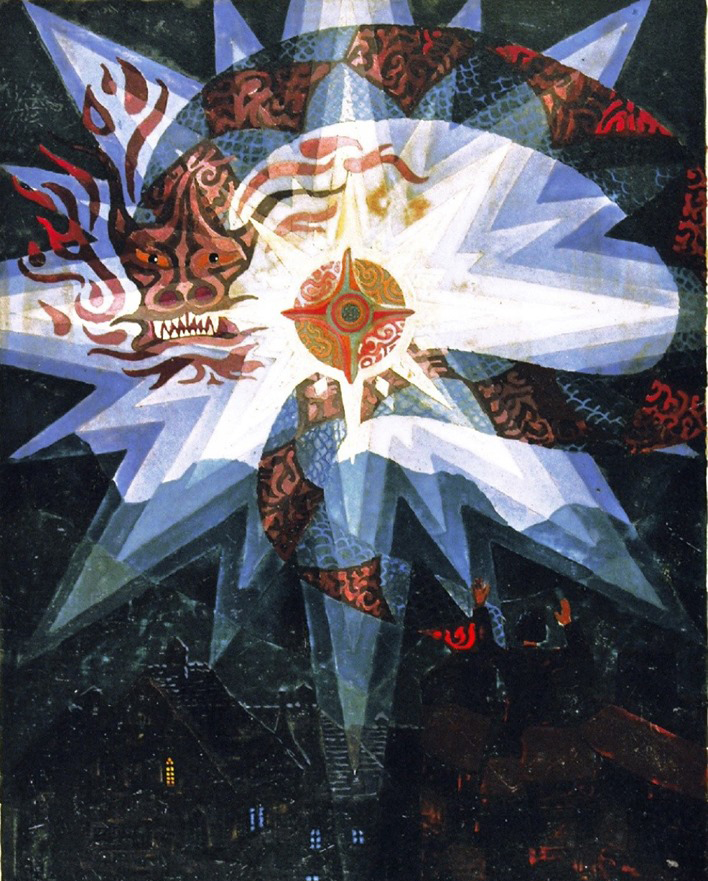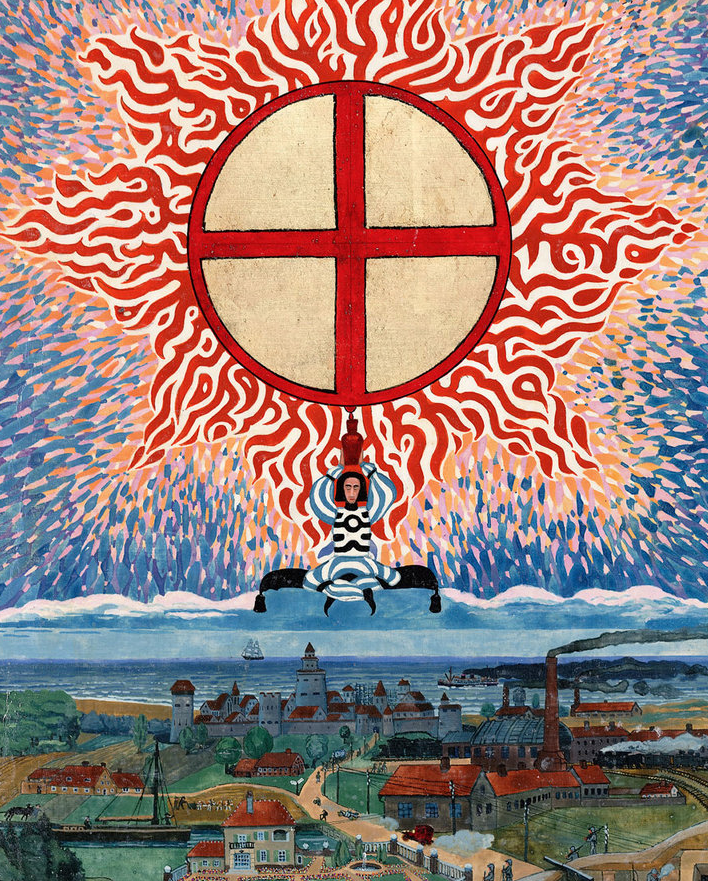Seminar 1: Fall 2019
12 Wednesdays: 7:00 - 8:30 pm
September 18 – December 18
(excluding October 9 and November 27)
This advanced seminar will explore the relation among three vitally important dimensions of Jungian psychoanalysis – art, active imagination, and the archetype of creativity – and their importance to the psyche both clinically and culturally.
Although Jung expressed ambivalence toward art (especially toward modern art), he was himself an impressive artist who regarded with respect the therapeutic value of art as an expression of the unconscious. As the book The Art of C.G. Jung beautifully documents, Jung painted in pastel and oil, carved in wood and stone, and profoundly appreciated the aesthetic aspect of the psyche. Jung said explicitly of Jungian psychoanalysis: “It is an art.”
Active imagination is the technique that Jung invented for actively evoking images from the unconscious and then actively engaging those images in a dialogue. There are differences between this method and Freud’s technique of free association and their clinical applications in the analysis of the psyche and the cultural value in the creation of art. Jung’s method deliberately induces an altered state of consciousness that provides access to the radically original, innermost sources of creativity. The Red Book comprises the experiments that Jung conducted in active imagination and the art that he created from those experiences. It demonstrates the superb quality of artistry of which Jung was personally capable.
While there are different archetypes in the unconscious, and especially in dreams, the archetype of creativity is perhaps the most important in the individuation process. We will identify those archetypes and learn how to access and activate the archetype of creativity.
Instructor: Maria Taveras, LCSW
Note: Two sessions of the seminar will include drawing and painting by participants of images from dreams. There is a materials fee of $25.
Learning Objectives:
- Explain the importance of art and creativity to the psyche both clinically and culturally.
- Summarize Jung’s ambivalent, controversial attitudes and valuable opinions about art, modern art, aesthetics, and creativity in both theory and practice.
- Explain the difference between Freud’s technique of free association and Jung’s technique of active imagination, the clinical application of these methods in the analysis of the psyche, and the cultural value of these methods in the creation of art.
- Explain how to induce the altered state of consciousness that constitutes active imagination and how to apply these methods both clinically and culturally to vital issues of artistry and creativity.
- Define Jung’s concept of “archetype.”
- Identify different archetypes in the unconscious and especially in dreams.,
- Explain how to access and activate the archetype of creativity.
FACULTY
The Jungian Advanced Seminars
Royce Froehlich, PhD, MDiv, LCSW-R, is a Jungian analyst in private practice in NYC. He is a graduate of Union Theological Seminary, Columbia University, The New School for Social Research, and the C.G. Jung Institute of New York. He holds a doctorate in media studies, and masters’ degrees in theology and social work. Along with his private psychotherapeutic practice, he is an instructor, supervisor and training analyst at the C.G. Jung Institute of New York.
Maria Taveras, LCSW, is a Jungian analyst in private practice in New York City. She is a graduate and former Board member of the C.G. Jung Institute of New York. She is also an award-winning painter and sculptor of Dream Art. To investigate the unconscious sources of creativity, she paints and sculpts images from her own dreams. She has received two Gradiva Awards from the National Association for the Advancement of Psychoanalysis for her Dream Art. Her web site is www.jungiantherapy.com.
YOU DO NOT NEED A PAYPAL ACCOUNT. HERE IS HOW TO PAY WITH CREDIT CARD: On the Paypal login page, look below login fields for a boxed link that reads PAY WITH DEBIT OR CREDIT CARD.
Tuition
Tuition for each seminar is $540.
Students registering for both seminars will pay a discounted fee of $900.
There is an additional $25 materials fee for Seminar 1.
$565 (includes $25 materials fee) Art, Active Imagination, and the Archetype of Creativity

$540 The Religious Ground of Jung’s Analytical Psychology

$925 (includes $25 materials fee) Both Advanced Seminars, discounted rate

For registration by mail or phone, please snail-mail this form:
Click Button to Download Form.
Include your credit card information or check, made payable to
the C.G. Jung Foundation, and a self-addressed stamped envelope to:
The C.G. Jung Foundation
28 East 39th Street
New York, NY 10016
Fax: 212-953-3989
Refunds for Advanced Seminars courses, less $50 for administrative services, will be made up to seven days before the first session. See below for full policy on refunds and cancellations.
PROGRAM NOTES
These seminars are intended both for the general public and for professionals.
Eighteen (18) continuing education credits for New York State licensed social workers, psychoanalysts and creative arts therapists are offered for each seminar.
Please note that credit is granted separately for each of the seminars. The program is subject to change without notice.
Policy on cancellation and refunds:
The C.G. Jung Foundation reserves the right, in its sole discretion, to cancel a program at any time. If the Jung Foundation cancels a program, you will receive a full refund of your registration fee.
Refunds are available (less a $50 processing fee) up to seven days before your program. Nonrefundable credit toward a future Jung Foundation program (less a $50 processing fee) is available if you give notice between seven and one day(s) before your program. Credit may be applied to any Jung Foundation program for one year following date of issue.
No credit or refund is available if you cancel on the day of the program; if you do not attend; or if you leave a program early for any reason.
Requests to cancel should be made in writing or by email. Written requests may be sent to:
Office of the Executive Director, C.G. Jung Foundation for Analytical Psychology
28 East 39th Street,
New York, NY 10016
Email requests may be sent to: C. G. Jung Foundation


